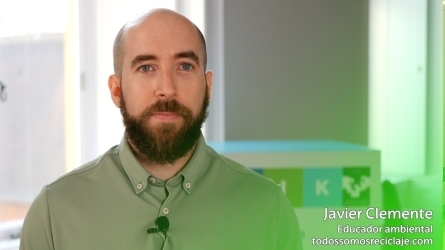Ihobe and APIA launch the Environmental Communication School on biodiversity and natural heritage at the UPV/EHU Summer Courses
<p> It will be held as part of the Sustainability Forum at the Miramar Palace in San Sebastián on 21 and 22 September.</p> <p> The School is being run for the second time and will analyse how communication can contribute to better knowledge and protection of biodiversity and natural heritage.</p>

Ihobe, the Basque Government’s Environmental Management Agency coming under its Ministry of the Environment, Territorial Planning and Housing, and the Association of Environmental Information Journalists-APIA are the driving forces behind the “Communicating Biodiversity and Natural Heritage” Environmental Communication School, to be held at the Summer Courses of the University of the Basque Country/Euskal Herrriko Unibertsitatea (UPV/EHU).
The Summer Course seeks to analyse how communication can contribute to better knowledge and protection of biodiversity and to showcase the services provided by ecosystems and nature, which are essential for the economy and for the wellbeing of society. The aim is to use the field of communication to drive the involvement of companies, organisations and the public in the changing of habits and behaviour to live and produce in a more sustainable way.
The Summer Course, which will be held at the Miramar Palace in Donostia/San Sebastián on 21 and 22 September, will highlight initiatives from different places and with different approaches, including the media and environmental education. It will also address the situation of the Basque Country, an area with a wealth of biodiversity, that, even though it only accounts for 1% of the territory of the European Union, is home to over 2,500 different species, along with 35% of European habitats of interest, 21% of the fauna and 2% of the flora species.
The latest UN report on biodiversity warns about the mass loss of species due to human activity. Nearly 1 million species are threatened with extinction, many within decades, which is an unprecedented threat in human history.
This is the second time that the Environmental Communication School is being held. In 2019, it addressed the climate emergency and this year is focusing on biodiversity and natural heritage, both of which are closely linked issues. Many in the academic and scientific community have stressed the close relationship between the climate crisis and the huge loss of biodiversity in recent decades and the appearance of COVID-19, which has devastated much of the world since the start of 2020. Action against the climate crisis has many other implications, as it also embraces the fight against loss of diversity, preserving the natural heritage and other production, consumption and life models.
The Environmental Communication School is part of the so-called Sustainability Forum, an open platform for meeting, dissemination and training, in order to highlight the great social and scientific challenges regarding sustainability.
Top-tier speakers
The Summer Course will be opened by Elena Moreno, the Basque Government’s Deputy Minister for the Environment. María García, the APIAC Chair, will speak on what environmental communication is and what it is for. “2020, a Crucial Year for Biodiversity” is the title of the paper to be given by Lourdes Lázaro, Corporate Development manager at the Centre for Mediterranean Cooperation of the International Union for Conservation of Nature. Odile Rodríguez de la Fuente, an environmental and scientific communicator, will speak on “A Man on Earth. Disseminating Nature”, inspired by the book that she has just published on her father, Félix Rodríguez de la Fuente, to coincide with the 40th anniversary of his death.
Cristina Monge, an executive advisor at the Ecodes Foundation and lecturer of Sociology at the University of Zaragoza, will lead the “Communicating Natural Heritage and Biodiversity” roundtable. The first day will end with the “Mobile Phone as an Environmental Journalism Tool” workshop, run by María Josep Picó, a scientific and environmental journalist and associate lecturer and research at Universitat Jaume I.
Xabier González, Coordinator of Ihobe’s Communication Area, will get the second day underway. Juan Luis Cano, a journalist, comedian and writer at the Gomaespuma Foundation, will speak on “Humour to Communicate Biodiversity and the Environment”. “Crisis Communication in the Environmental Field” is the title of the paper to be given by Javier Valenzuela, Communication Director at the Castilla y Léon Natural Heritage Foundation and APIA deputy chair.
The participants at the “New Formats to Communicate Biodiversity” roundtable will be María José Montesinos, producer of the “Tiempo de actuar” environmental space on RNE de Aragón; Óscar Menéndez, a scientific communicator; María José Parejo, “El Bosque Habitado” producer on Radio 3; and Daniel Rodrigo, an environmental educator. Rocío Benavente, Maldita Ciencia coordinator, will run the “Communicating Biodiversity and Natural Heritage in the Fake News Era” practical workshop.
Online registration is already open and you can sign up on the UPV/EHU Summer Courses website:
Escuela de Comunicación Ambiental. Comunicar biodiversidad y patrimonio natural


